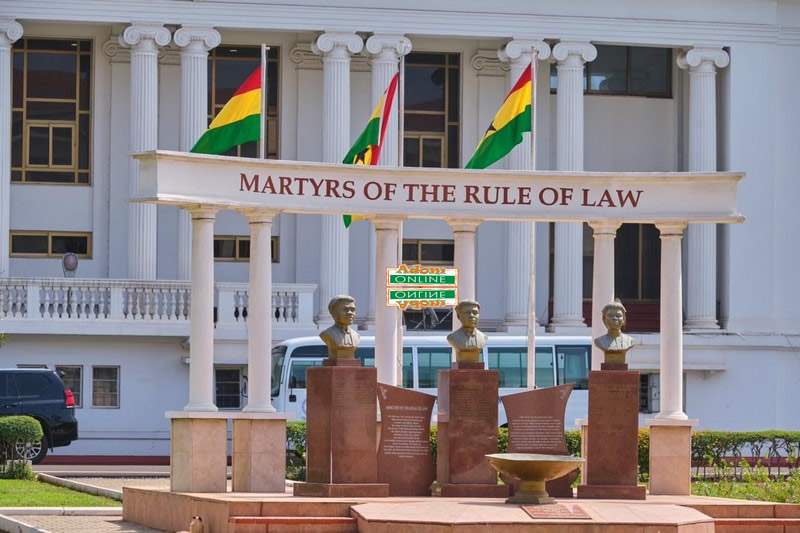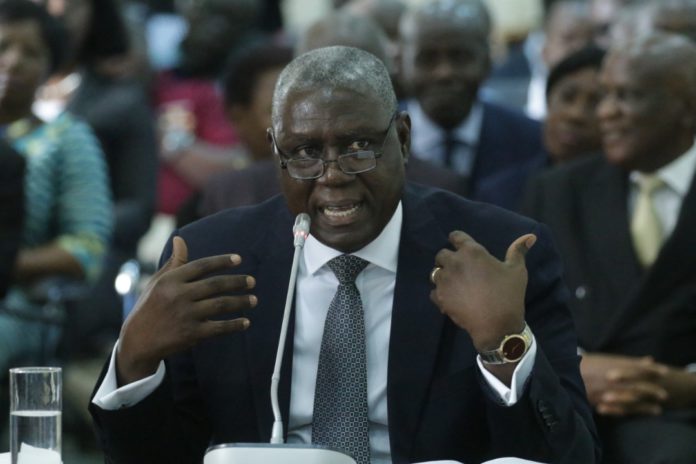Ex-President Mahama’s remarks reported to have been made at the 2nd Annual National Democratic Congress (NDC) Lawyers’ Conference on 30th August, 2022 pointed to what he described as a “broken image” in the Ghanaian judiciary and ended with the removal of the current Chief Justice as its solution.
His supporters hail this prescription which his opponents condemn it as diabolical. To them, even if there is something wrong with the institution, the removal of the Chief Justice is not the remedial action one should, in all fairness, prescribe. While accepting that, as a human public institution, the Judicial system of Ghana cannot be said to be faultless, it is my view that, the removal of Justice Kwasi Anin-Yeboah cannot be the best prescription.
For anybody to say that our judiciary needs some drastic reformation to reflect our motto of “Freedom and Justice” is just to repeat what has been said over the years. Dr. Kwame Nkrumah, condemned the acquittal and discharge of Dr. Ako-Adjei, Mr. H. H. Coffie-Crabbe, Mr. Tawiah-Adamafio at the “Treason Trial” in December, 1963, and sacked the first Ghanaian Chief Justice Sir Arku Korsah and his two other Supreme Court panelists. Prime Minister Professor Kofi Abrefa Busia too expressed his rejection of a similar verdict against his government in a case of wrongful dismissal lodged by Mr. E. K. Sallah of the Ghana National Trading Corporation Department Stores with his historical “no court, no court” utterance.
The three (3) Supreme Court Judges who were murdered in the early days of the PNDC could have suffered their fates due to some of their respective judgements during the Limann’s administration, just before the Rawlings’ revolution of 31st December, 1981.
President Nana Addo Danquah Akufo-Addo too in 2013 to expressed his disagreement with the verdict of the Supreme Court which went against him, but (in his case), accepted and went on to congratulate Ex-President John Dramani Mahama. Since the tables turned against him in 2020, Ex-President Mahama and his party have not hidden their objection against the loss of their case and yet are to congratulate the winner, Nana Addo Danquah Akufo-Addo.
It is a necessary truth that the Judiciary, like any other human public institution in the country has its problems. Therefore, if I happened to be former President Mahama, I would have taken the opportunity offered by the Conference to ask my party lawyers to identify the specific areas within the system that I want to be looked at, and provided a few recommendations for consideration and pushed forward for the reforms I call for.
After all, the quality of the justice enjoyed by the people determines the quality of their true freedom.

Among the obvious ones many Ghanaians would like the Judiciary to address are those that relate to the length of time and quantum of money it takes to secure justice in both civil and criminal cases. Our present system demands too much time and money because of the numerous technicalities such as long adjournments, unmeritorious appeals and reviews.
Loss of confidence in the court system because of these leads people to take the law into their own hands when they are hurt, or, alternatively, choose to remain quiet, suffer in silence and curse the government of the day for neglecting them.
One other important area I would have recommended to be looked at is that which deals with electoral disputes, especially Presidential and Parliamentary. The Kenyan Supreme Court was highly appreciated by a lot of people because it took only a few days to resolve Kenya’s recent Presidential election conflict. Even though the three-month period for resolving our 2020 Presidential election results was a great improvement over that of the 2012, it is possible our court could have used a shorter period.
Right now, we are mid-way into the four-year life of the Eighth Parliament of the Fourth Republic, yet there are some Parliamentary seats still waiting in the courts for clearance. Are we going to see the replay of the case of Mr. Godfred Amoo, who had to wait till four months to the rise of the then Second Parliament of the Fourth Republic, before securing judgement in his favour as the winner of the Ayawaso West seat without the opportunity of being sworn-in as such? Like in Kenya, we can consider resolving our Presidential Election results before the winner is sworn in to begin his / her tenure from that date. Parliamentary suits should not go beyond six (6) months.
Furthermore, I would have suggested that electoral disputes should attract compensation package against the losers for wasting both the time and money of the court and the winner.
Another area I would have touched on would be the problems of court bailiffs in having accused persons served in civil and criminal cases, especially, highly placed government and top public officials. Many innocent people have thrown their hands in despair because their offenders are often left off the hook since they have been able to dodge service of the court bailiffs due to legal technicalities and the cost involved.
The question to answer is whether any of these issues raised here requires the removal of the current Chief Justice to effect any reforms we pray for. The Judiciary has travelled a long way from His Lordship Mark Wilson through Sir Arku Korsah up to His Lordship Kwasi Anin-Yeboah. It also has travelled through our post-independent Heads of State and Governments including Ex-President Mahama himself. No Chief Justice is on record to have been removed for professional misconduct. Even, our military regimes have maintained them. It is extremely debatable, therefore, if there are any grounds to do so now and who should do so without infringing on the Constitution?
The Judiciary only implements laws passed by the Legislature and the Executive. Are there any laws it has failed to execute perfectly for which its Chief Justice needs to be held responsible and removed?
May be, we can address some of our misgivings to the Ghana Law Reform Commission and the General Legal Council for consideration rather than the Judiciary alone. The removal of Justice Kwasi Anin-Yeboah not a satisfactory solution. Who should remove him and how should he do so? Even, with partisan politics being entertained in our legal profession, it is not likely that this solution will be wholly acceptable.
The Chief Justice, however, should consider some of these wake-up calls for self-correction, faster delivery of justice and for improved image of his outfit. For example, how longer should the relatives of the murdered M. P. Hon. J. B. Danquah Adu, of Abuakwa-North Constituency wait for the justice they have been looking forward since 2016? Also, how longer should Ghanaians wait to get the outcome of the trial of the young man arrested with human flesh in his deep freezer at Abesim near Sunyani?
What happened to those Fast Track Courts? Do our professional bodies have in their Codes of Ethics anything against the proliferation of partisan politics?
The Writer is a Past Registrar of Ghana Institute of Journalism, and Koforidua Polytechnic (now Koforidua Technical University)

